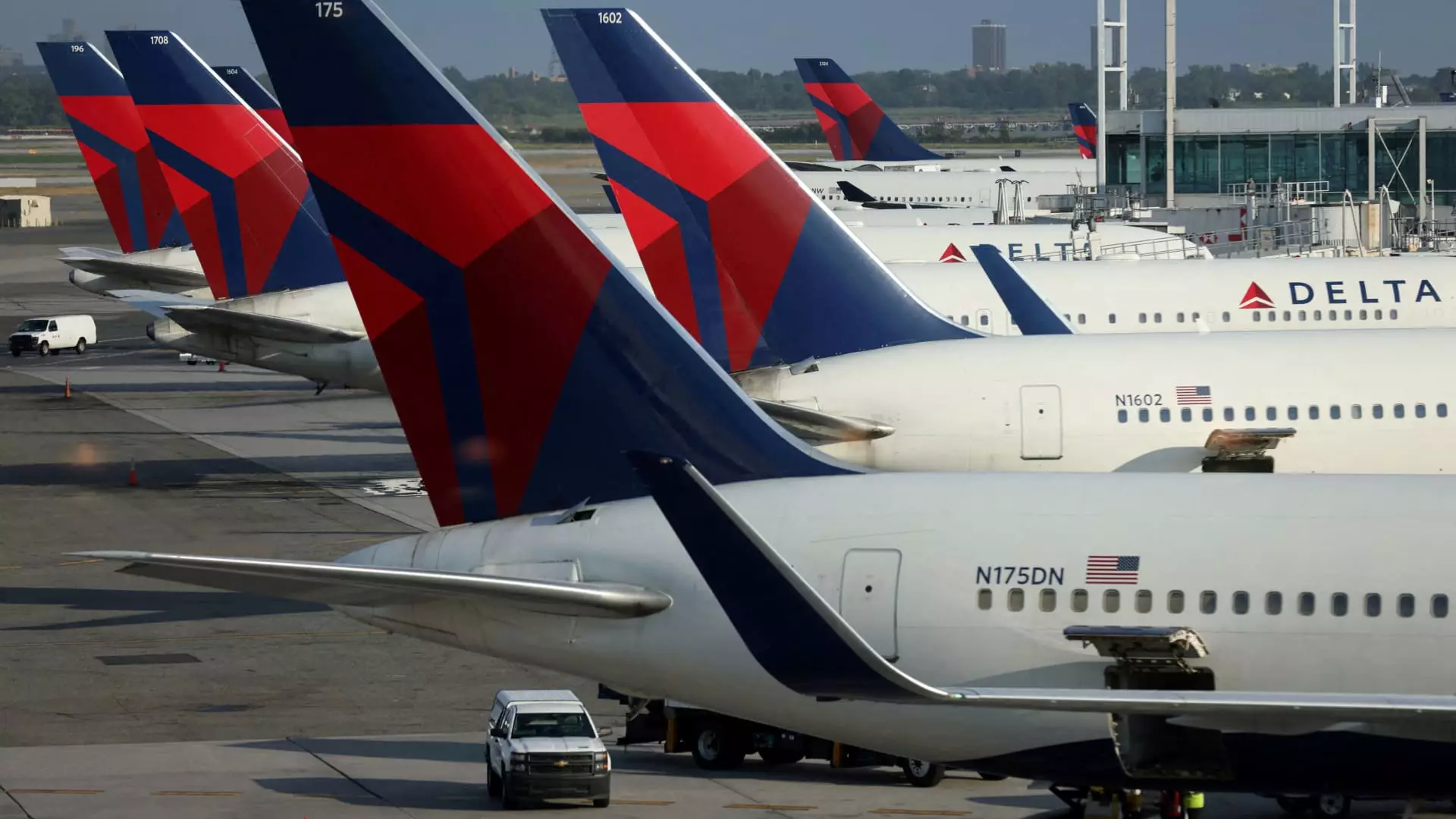In a dramatic turn of events, Delta Air Lines has filed a lawsuit against the cybersecurity firm CrowdStrike, alleging serious breaches of both contract and duty of care following a catastrophic software update that occurred in July. This incident, which not only crippled Delta’s operational capabilities but also resulted in a staggering 7,000 flight cancellations, serves as a potent reminder of the vulnerabilities inherent in our technologically dependent society. The airline claims to have lost an estimated $380 million in revenue alongside incurring $170 million in additional costs due to the fallout from this powerful software glitch.
While Delta struggled to regain its footing, other airlines managed to recover with surprising speed, raising questions about the effectiveness of CrowdStrike’s solutions. The flawed update, which was purportedly designed to enhance user security, instead wreaked havoc on systems operating on Microsoft’s Windows OS. This incident highlights a glaring issue within the cybersecurity industry: the reliance on updates that can, ironically, introduce vulnerabilities rather than resolve them. Delta’s allegations point to a grim reality where a company’s quick pursuit of technological advancement can lead to widespread chaos.
Legal Implications and Corporate Accountability
In a strong move to seek justice, Delta has engaged the services of prominent attorney David Boies from Boies Schiller Flexner. Delta is seeking not only compensatory damages for the financial losses incurred but also punitive damages, which underscore the severity of CrowdStrike’s alleged negligence. The complaint draws attention to what Delta perceives as deliberate dalliances with acceptable practices, insisting that CrowdStrike “cut corners” in their testing processes, ultimately undermining the very integrity of their software. This raises critical questions about accountability within the tech industry and whether companies like CrowdStrike can be held responsible for the cascading failures that their failures can induce.
Statements from Delta’s CEO, Ed Bastian, resonate with frustration as he described the disruption caused by the faulty update as deserving of full compensation. This sentiment emphasizes a growing concern within corporate culture where service providers must bear the consequences of their shortcomings. Meanwhile, CEO George Kurtz of CrowdStrike has issued an apology, yet the solution is not merely words; it involves a commitment to reform practices going forward. As CrowdStrike lowers its financial guidance and engages in discussions with Microsoft and others in the security landscape, the timeline for significant change is of utmost importance.
The implications of this lawsuit extend beyond just financial losses for Delta Air Lines. They serve as a warning to all stakeholders within the tech space: technology must be meticulously vetted before deployment. Organizations must pivot towards more thorough testing protocols to mitigate similar incidents in the future. As the case progresses, it will be vital to watch how the tech industry reacts—whether they embrace stricter quality controls or continue to prioritize rapid deployment, possibly at the expense of safety and reliability.

